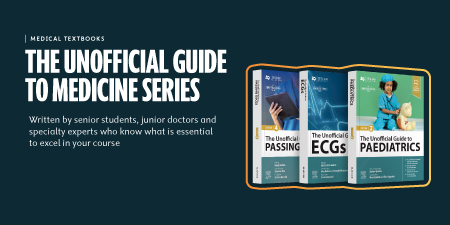Everything You Need to Know About the UCAT
Featured Titles
The University Clinical Aptitude Test (UCAT) is an admissions test for would-be UK healthcare professionals that forms a part of the multi-factorial admissions process. It is a computer-based test that, as the name suggests, assesses various aptitudes to mimic a soft-skill set that is required by medical professionals. The 5 sections of the UCAT are;
- Verbal Reasoning: tests your ability to read, analyze and draw conclusions from text
- Abstract Reasoning: assesses your ability to identify patterns while avoiding distractions
- Decision Making: measures your ability to apply logic to reach a suitable decision
- Quantitative Reasoning: evaluates your numerical skills
- Situational Judgement: determines your capacity to make real-world decisions appropriately
WHERE IS THE UCAT ACCEPTED?
Between the BMAT and the UCAT, the latter is more widely accepted by medical and dental schools around the UK. A complete list can be found on the official UCAT website. However, it is important to note that some universities may have different or additional requirements for international and/or graduate entry students.
The UCAT is also accepted by a few non-UK based associate universities in Europe and the Caribbean.
IMPORTANT DATES TO KNOW FOR UCAT 2021
Sitting the UCAT is not a straightforward process. You will need to register and book your exam in a local center – or at home, depending on local COVID guidelines at the time of the exam – as well as provide certain documentation. Here are some of the most important dates to jot down in your calendars as you prepare to sit the UCAT in 2021.
- 2nd June 2021: Registration, bursary and access arrangement applications open
- 28th June 2021: Bookings open
- 26th July to 29th September 2021: Testing period
- 22nd September 2021: Registration and access arrangement applications close
- 15th October 2021: UCAS application deadline
- November 2021: Results delivered to universities
As italicized above, the testing period runs from July to September so keep this in mind when deciding when to begin intensive preparation. More on this later!
HOW TO PREPARE FOR THE UCAT
There are a plethora of UCAT preparation materials available online. Furthermore, the pandemic has strongly encouraged a move towards virtual work spaces. This has led to the development of multiple online courses, question banks and videos to help university applicants. Some of the most popular sources are listed below.
- Get Into Medical School: 1250 practice questions, 3rd edition by ISC; available on Amazon (the questions in this book are thought to be harder than the exam though, so don’t let it put you off!)
- UCAT mock exams on the official UCAT Consortium website
- Virtual 1-to-1 tutoring for the UCAT through services like Medic Mind
- GMC guidelines for medical students (a must-read in preparation for the SJT)
There are numerous other books and online courses available online. Additionally, many medical students and junior doctors have posted videos on YouTube detailing their preparation for the UCAT.
With so many resources to choose from, it can get quite overwhelming. On average, students should strive for 6-8 weeks of daily preparation with more intensive preparation on the weekends when school work is less likely to get in the way. Reflect on your individual learning styles and pick preparation material that will be most effective for you.
WHAT DOES YOUR UCAT SCORE MEAN?
So you’ve sat your UCAT and you’ve got your score a few minutes later. At first, it may simply look like a few numbers on a page. And you may even think your SJT score is missing. Here’s how to analyze your results once you’ve finished the exam.
Each section, barring the SJT, is scored out of 900. Therefore, your total score will be out of 3600. However, universities typically look at average scores out of 900 with anything over 650 considered a high score. Scoring above 700 will typically land you in the top 10% of UCAT scorers and be readily accepted by the majority of universities. However, this is subject to yearly performance by the entire cohort of 2021 applicants. Also important to note is that there is no negative marking in the UCAT.
The SJT is not scored within the aforementioned 3600 marks. Rather, you are given a band based on your performance with Band 1 indicating an excellent level of performance and Band 4 demonstrating the weakest abilities. This means that you cannot hide your SJT score within your overall score or average. Some universities may even have a minimum requirement for the SJT band. Therefore, it is worth focusing extra attention on this part of the exam while preparing.
UCAT vs BMAT
The UCAT is not the only entrance exam accepted by medical schools in the UK. A small handful of universities ask students to sit the BMAT instead. This is a completely different exam, with different testing dates and a more academic format. The BMAT, in many ways, will mirror typical A-level exams with a strong focus on Science and Maths.
Stay tuned for another blog post detailing the BMAT in the upcoming months.
As previously mentioned, the UCAT is one part of a multi-faceted application process. Neither does a good score guarantee entry into medical school nor vice-versa. It is important, however, to try your best, focus on intensive and effective preparation and intuitively choose universities based on your final UCAT results.
Good Luck!




